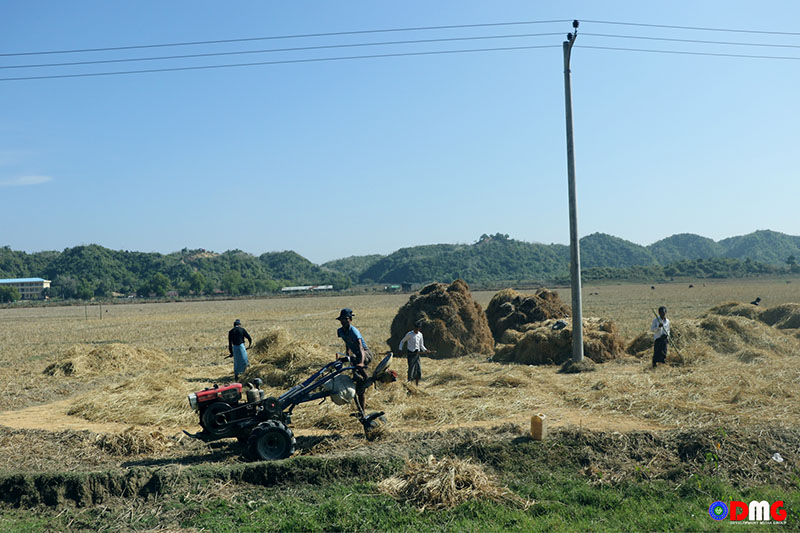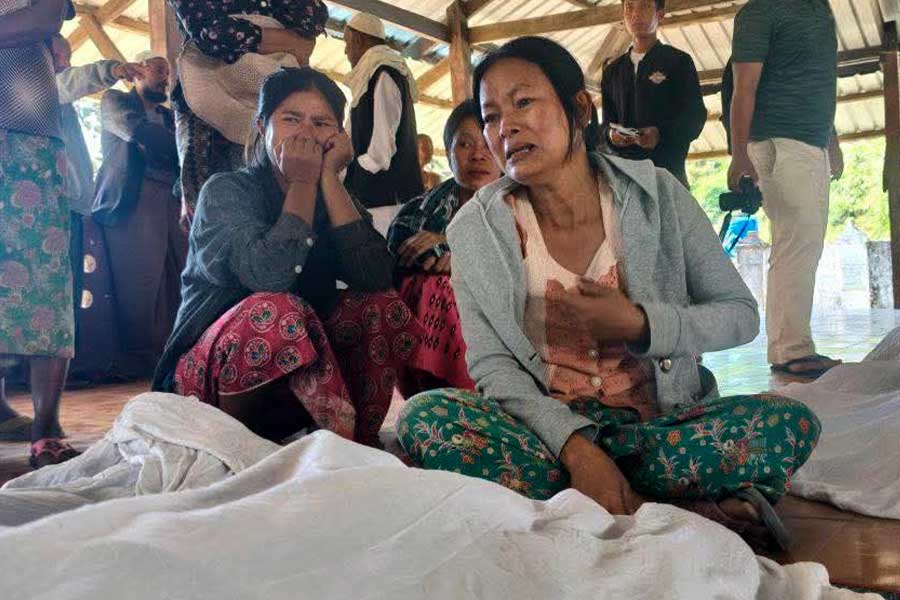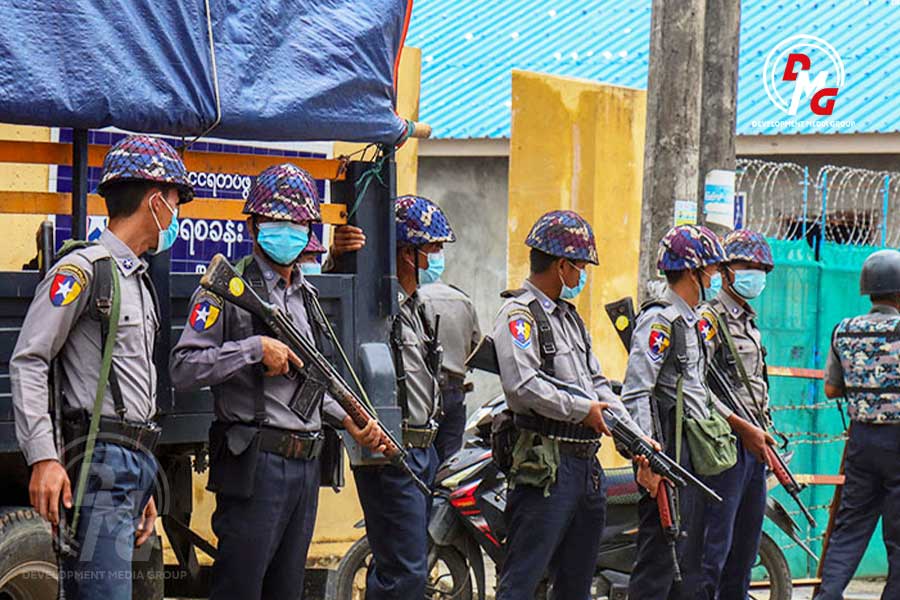- Junta expands naval presence along Arakan coast to regain lost territory
- Nearly 70 civilians and POW family members killed or injured by junta attacks in Arakan State in one month
- Junta accused of extorting money from detained Muslims in Sittwe
- Weekly Highlights from Arakan State (Jan 26 to Feb 1, 2026)
- Arakanese youth stabbed in Mae Sot urgently needs financial aid for medical treatment
Arakan State farmers facing financial losses due to decline in paddy yields
Paddy yields are reportedly lower this year and farmers are facing financial losses due to climate change’s effects on the rice paddy harvesting season, high input costs, poor paddy prices and armed conflict in Arakan State.
13 Dec 2022

DMG Newsroom
13 December 2022, Sittwe
Paddy yields are reportedly lower this year and farmers are facing financial losses due to climate change’s effects on the rice paddy harvesting season, high input costs, poor paddy prices and armed conflict in Arakan State.
Farmers said that due to the lack of regular rain in the rainy season and other manifestations of climate change, paddy yields have decreased.
“During the months of Waso and Wakhaung, there were about 40 days without rain, so the quality of paddy was bad due to weather changes. The paddy yield has to decrease because the paddy plants were damaged by climate change,” said U Aung Kyaw Mya, a local farmer from Apaukwa Village, Kyauktaw Township.
Renewed hostilities between the military and Arakan Army (AA) in Arakan State have also negatively affected yields. At present, it is estimated that Arakanese farmers may experience losses of up to 50 percent.
“Due to the artillery shells fired by the military, we were unable to fertilise the paddy plants in time. If you don’t have time to cultivate your own paddy fields, you may not get the required paddy yields,” said U Aye Maung, a local farmer in Nagayar Village, Kyauktaw Township.
Last year, his per acre yield was from 150 to 180 baskets of paddy, but this year’s per acre yield is only 88 baskets of paddy, resulting in a loss of up to 50 percent, he added.
The price for 100 baskets of Nga Sein paddy was around K400,000 in Arakan State last year and declined to just over K350,000 this year. The price for 100 baskets of Paw Hsan Hmwe (Myanmar pearl rice) was nearly K600,000 last year and the price decreased to around K500,000 this year.
Farmers in Arakan State have faced financial losses this year, so they will face many difficulties in planting paddy next year, said a farmer from Ponnagyun Township.
“Farmers will no longer want to grow paddy as they face financial losses due to the decline in paddy yields this year. Farmers will no longer want to grow paddy and will abandon their farmlands,” the farmer added.
Less than 900,000 out of 1.2 million acres of arable land in Arakan State could be cultivated this year due to the high cost of farming, conflict, and about 50,000 acres of farmlands that were damaged by storms.















.jpg)

